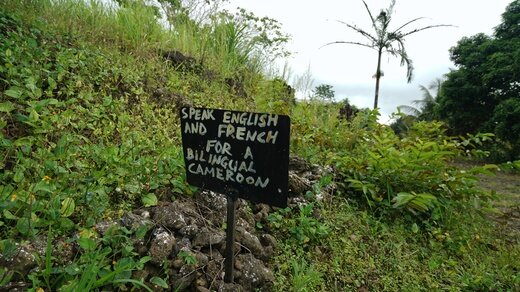
Cameroon
Lessons From the Past on Cameroon’s Crisis
For John Campbell’s “Africa in Transition” blog on the Council on Foreign Relations website, I authored a piece on how lessons from the Eritrean War of Independence offer clues to a potential endgame to Cameroon’s conflict. It is reproduced below.
The violent conflict in Cameroon, still rarely discussed in Washington, is becoming increasingly dire. Both President Paul Biya’s Francophone regime in Yaounde and the Anglophone separatists in the southwest region are accused of brutal human rights abuses, including the burning of villages, attacks on schools, and the killing of men, women, and children. Despite mediation attempts by the Swiss government and sanctions by the Trump administration, there are no signs of any progress towards a negotiated settlement.
In 1991, I mediated an end to a different African conflict with some striking similarities: the Eritrean war of independence, which raged for nearly three decades. Lessons from that precedent offer clues to a potential endgame in Cameroon.
Read MoreStatement on Cameroon
In recent days, press coverage misstating my position, and rumors, have circulated indicating I will be representing the Cameroonian separatists identifying themselves as an interim government of “Ambazonia” in their upcoming talks with Paul Biya’s government.
This is untrue. I do not represent Ambazonia in any way, and I will not be participating in the talks.
I do hope that the dialogue between the Biya administration and the Anglophone separatists leads to peace. The Swiss government’s mechanism for mediation is an excellent option, which I hope both sides will assent to.
An Update on Cameroon: Time for a Peace Process
(Read my October piece on Cameroon for background on the historical roots of the country's crisis.)
There is no military solution to the conflict between Paul Biya's regime in Cameroon, and the Anglophone separatists at war with it since 2017. The overwhelming, brutal, and repressive response of Biya's security forces has resulted in countless killings, hundreds of thousands displaced, and a total denial of basic services in the Anglophone regions.
Despite the dark state of affairs, Cameroon's situation is ripe for external mediation.
Read MoreHow Minority Rule Withered Cameroon's Prospects
Among the many French and British African colonies which achieved independence in the early 1960s, Cameroon seemed destined for greatness. A diverse reflection of peoples from across Africa, Cameroon has both Christians and Muslims, and French and English-speakers. The country enjoys substantial natural resources, as well as excellent agricultural potential.
Sadly, greatness has eluded the Cameroonian people. The country's governance over the past six decades has been deficient in practically every respect. Weak democratic institutions are largely to blame; there is no doubt that Paul Biya will be the winner of the just-completed elections. Like every election in Cameroon since 1982, the 2018 polls were most certainly rigged.
Read MoreGovernment Owned Oil Companies: Enabling the Resource Curse in Africa
Crude oil has been flowing from African wells, both on land and beneath the oceans, since the mid 1970s. Before then, Africa’s main source of revenue was agriculture.
International oil companies have been the most important source of investment capital needed to find and produce oil in African countries. The international oil companies have also provided the technology and expertise needed to keep African crude oil flowing to international markets. At the present time (2016), African nations produce approximately six million barrels of crude oil per day.
How do African governments and the international oil companies share the wealth coming from crude oil flows and export sales?
Read MoreNigeria Election
THE AFTERMATH OF THE NIGERIAN PRESIDENTIAL ELECTION
AND NOW THE HARD PART
Most Nigerians are euphoric over the results of the presidential election that took place on Saturday, March 28, 2015. The election was conducted honestly. The state-by-state count was free and fair. And most surprising of all, the incumbent, President Goodluck Jonathan, conceded defeat even before the final count was completed. In a country where every election since 1999 was rigged, the May 28 event constituted nothing short of a revolution.
Civilian rule returned in 1999 after two decades of military dictatorship. It is impossible to say that the return of civilian rule, within democratic institutions, resulted in good governance. On the contrary, Nigerian politicians in power reached new heights of corruption and dysfunctional government between 1999 and 2015. The new President-elect, Muhammadu Buhari, is facing an overwhelming challenge to clean things up and reform the entire governmental and military management system.
Read More
